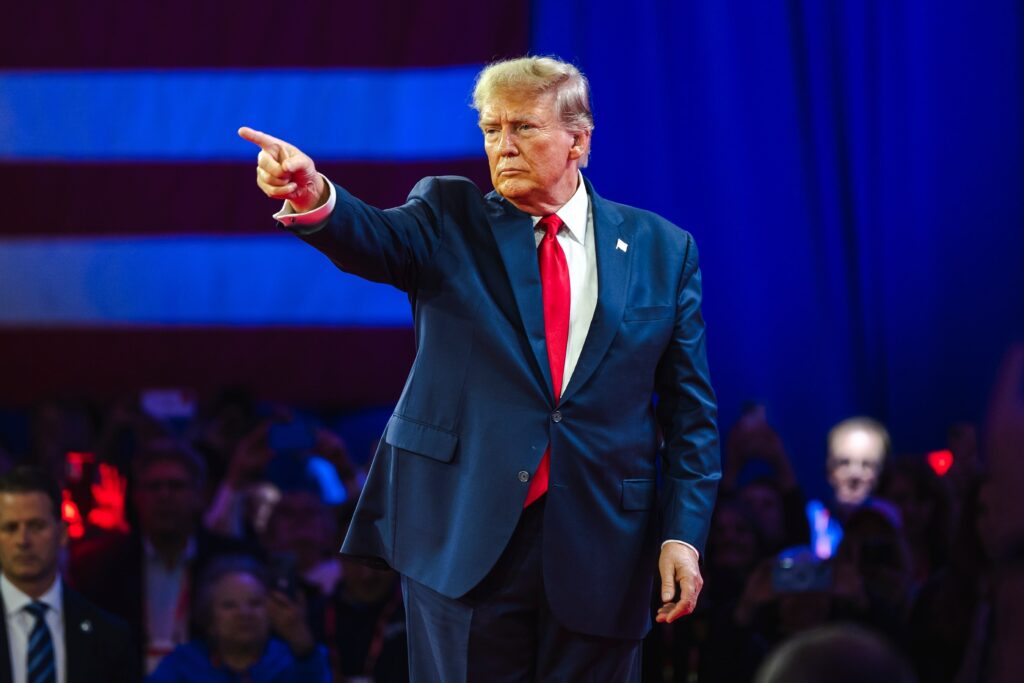Donald Trump has repeated his threat to impose a 100% tariff on all films produced outside the United States. He argued that foreign nations had “stolen” America’s movie industry.
California highlighted
On Monday, Trump said California had suffered most under the current system. He claimed the levy would “solve this long time, never ending problem”. In May, he already revealed plans to meet Hollywood executives. At that time, he warned the American film sector was dying “a very fast death”.
Tariffs spread across sectors
Trump’s comments came after new tariffs on other industries. These included a 100% levy on branded or patented drug imports and 50% tariffs on kitchen and bathroom cabinets. On Truth Social, he said America’s movie industry had been taken “like stealing candy from a baby”. He also branded California’s governor “weak and incompetent”.
No timeline announced
Trump promised to apply the 100% tariff to “any and all movies made outside of the United States”. He gave no date for its introduction. The White House has not responded. It is unclear if streaming services such as Netflix would be included. No explanation has been given on how the tariffs would be calculated.
Canadian concerns
The Canadian Chamber of Commerce expressed “deep concern” about the proposal. It stressed that American studios depend on Canadian facilities, talent, and crews. Catherine Fortin-LeFaivre, senior vice president for international policy, said the tariffs would punish US studios. She warned they would raise costs, stifle investment, and harm both economies. She added the move could threaten thousands of middle-class jobs.
Analysts question plan
Dan Coatsworth, investment analyst at AJ Bell, said the tariffs would be difficult to apply. He explained tariffs usually target goods, not creative works. He noted many filmmakers choose foreign locations because of better tax incentives. He said the threat “raises more questions than it does answers”. Coatsworth stressed that defining an American-made film would be complex when international funding or actors are involved. He warned costs could rise and demand for cinemas and streaming could fall. Still, he said investors seemed unconcerned. Netflix and Disney shares dipped briefly but quickly recovered.
Overseas shoots increase
Recent US studio films like Deadpool & Wolverine, Wicked, and Gladiator II were filmed abroad. Research firm ProdPro reported the US remains a leading hub for production. Last year, American spending reached $14.54 billion, a 26% drop compared with 2022. Since then, countries including Australia, New Zealand, Canada, and the UK have attracted more investment.
Britain on alert
Officials in London are monitoring the situation. They want to know how the tariffs could affect the British film industry. A Department for Business & Trade spokesperson said the sector supports millions of jobs and generates billions for the economy.
Trump widens tariff agenda
Trump also announced new tariffs on wood and furniture on Monday. He imposed a 10% levy on softwood timber and lumber and 25% tariffs on kitchen cabinets, vanities, and upholstered wooden furniture. Earlier that day, he hinted at the plan on Truth Social. He promised “substantial tariffs on any country that does not make its furniture in the United States”. A presidential proclamation confirmed the tariffs will start on 14 October. Some will rise further next year if countries fail to strike agreements. These moves follow Trump’s earlier pledge of 100% tariffs on branded or patented drug imports unless companies build factories in the US.

